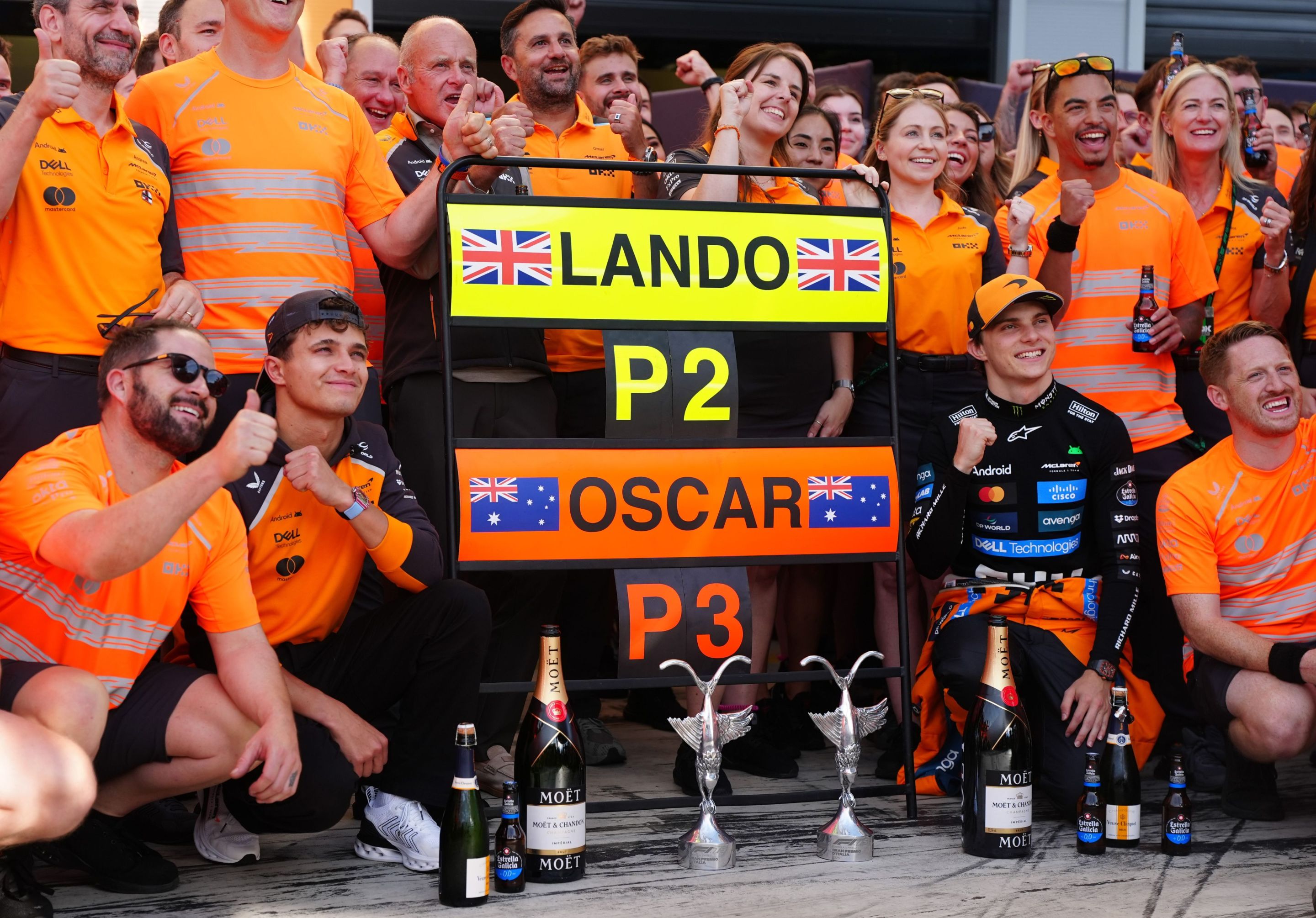The 2025 Formula 1 season opened with a sense of optimism that we would see a close, exciting championship battle. Well, the championship battle is certainly close. It is also mind-numbingly boring.
There is tension, I suppose, in the sense that the two numbers next to each driver's name in the standings are quite close to each other, and if you can do rudimentary math, you can calculate the difference between those two numbers as it expands or contracts. But with the exception of one or, generously, two races, recaps about the championship fight can ignore the action on track entirely and simply report the updated point totals at the end of each weekend without missing anything of note.
Ignore the last five laps of the race, and Sunday's Italian Grand Prix was just the same. There's some racing at the start. Both McLarens finish on the podium. Lando Norris gets P2 and updates his point total to 275. Oscar Piastri gets P3 and updates his point total to 309. The gap shrinks by six; Norris has eight more races to try to make up the now 34-point difference.
But include the last five laps of the race, and, well, you still get much of the same, though with some added discourse—it would still be too kind to categorize what happened as dramatic. Here's a suitably dry summary of the events: The McLaren team pit Piastri first in order to safely cover off Charles Leclerc, who will finish four seconds out of a podium place. Then the McLaren team pit Norris, with the intention of allowing the two cars to race once Norris left the pits ahead of Piastri. Unfortunately, Norris had a shockingly slow, nearly six-second pit stop due to team error. He left the pits nearly two seconds behind Piastri. McLaren, invoking their own disastrous pit-stop strategy call last year in Hungary, instructed Piastri to swap places with Norris, and then race. Piastri logged his complaints—"a slow pit stop is part of racing"—but obeyed without pushing the matter.
Both David Coulthard and Jolyon Palmer in the F1 TV commentary booth agreed with Piastri on his assessment of the subject. A slow pit stop is ordinary bad luck; Coulthard in particular repeatedly invoked the racing gods to indicate that this will happen over the course of a championship, and it was futile to make everything fair. How far does McLaren's management extend? Was Piastri not wrong to request, several races ago, that they swap places after receiving a harsh penalty? With the current state of F1 stewarding, penalties are basically a crapshoot, too. Should that be adjusted for?
McLaren's primary interest is not an intriguing championship battle—it's maintenance. The team wants a healthy driver pairing to peacefully lead the team to multiple Constructors' Championships for years to come. A slow pit stop within a team could lead to conspiracy theories of favoritism. It was apt that Piastri's race engineer invoked Hungary because that race was the purest example of the hegemony McLaren's Papaya Rules have over the team's culture. Back then, after making an unnecessary strategy call that would have given Norris the win over Piastri, Norris's race engineer spent several laps pleading with him to swap back with Piastri, imploring, "Just think of every Sunday morning meeting we have." Norris eventually acquiesced. Perhaps we would be somewhere different, and more interesting, if he had not.
A championship battle is in the hands of the drivers, and Norris and Piastri, who have grown within that ecosystem at McLaren (and an unforgiving social media environment), are not cutthroat enough to ignore team orders. Speaking of: Max Verstappen, who wound up winning the race by nearly 20 seconds, had the wherewithal to give his commentary on the driver swap, too. After being informed by his race engineer that the McLarens swapped places, he said, delighted, "Ha! Because he had a slow stop?" It goes without saying that Verstappen is not the sort of driver who would obey those sorts of orders. He is also not a great example for clean racing, though it's not a reach to say that Lewis Hamilton and Sebastian Vettel would not have obeyed those sorts of orders either.
Let's spread some blame around. It is not just McLaren's team orders, or the drivers' determination to out-polite their way to a championship, that has made the battle so dull this year. Much of the races in dry weather have been of remarkably poor quality. Sunday's race is a fine example: some good overtakes at the start, with two Ferraris in the mix, and once that stopped, little intrigue anywhere else. Tire degradation was too low, and the pit lane was too long; Hamilton knew enough to make fun of the race before it even began.
But no matter who gets the blame, if things proceed as they are, there will be nothing worth remembering this year. No explosive, rivalry-defining crash or conflict; no "I was faster, I passed him, I won." Of course, those are the extremes. It is unnecessary to request total dysfunction and toxicity—just the illusion of competitive fire would be better than the strange simulacrum of sport that is current F1. Even the McLaren drivers sound bored, almost affectedly nonchalant, whenever they talk over the radio.
The appeal of racing has always been that drivers want to win so badly, they will risk everything. These two won't risk being slightly rude. At least, five years from now, we can declare that McLaren had a very healthy team environment in 2025.






